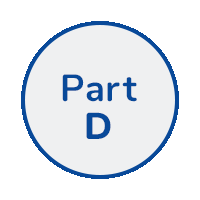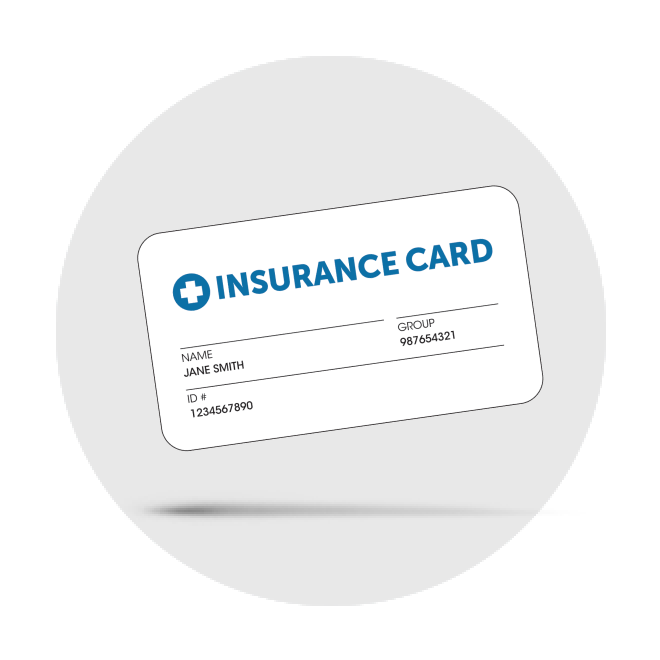Preferred Pharmacy Pricing
We offer preferred pharmacy pricing on most Medicare Part D and Medicare Advantage plans, which could mean copays as low as $0.*Medicare Plan Finder
Visit Medicare.gov to find and compare Medicare coverage options in your area, such as health and drug plans.Preferred Pharmacy Pricing
We offer preferred pharmacy pricing on most Medicare Part D and Medicare Advantage plans, which could mean copays as low as $0.*Medicare Plan Finder
Visit Medicare.gov to find and compare Medicare coverage options in your area, such as health and drug plans.Call 800–633–4227
Speak with a Medicare Expert.
What is Medicare?
Medicare Part A
Medicare Part A, also known as hospital insurance, helps cover the cost of inpatient hospital care, skilled nursing facility care, nursing home care, hospice care, and home health care.
Medicare Part A is provided by the federal government, usually without monthly premiums, as a result of your Social Security payroll contributions.
Learn More about Medicare Part A (Opens in a new tab or window)
Enroll in Medicare Part A (Opens in a new tab or window)
Medicare Part A
Medicare Part A, also known as hospital insurance, helps cover the cost of inpatient hospital care, skilled nursing facility care, nursing home care, hospice care, and home health care.
Medicare Part A is provided by the federal government, usually without monthly premiums, as a result of your Social Security payroll contributions.
Learn More about Medicare Part A (Opens in a new tab or window)
Enroll in Medicare Part A (Opens in a new tab or window)
Medicare Part B
Medicare Part B, also known as medical insurance, helps cover the cost of services completed by your doctor and other healthcare providers, durable medical equipment, mental health services, lab work, and some provider-administered prescription drugs.
Medicare Part B is provided by the federal government for a monthly premium based on your yearly income.
Learn More About Medicare Part B (Opens in a new tab or window)
Enroll in Medicare Part B (Opens in a new tab or window)
Medicare Part B
Medicare Part B, also known as medical insurance, helps cover the cost of services completed by your doctor and other healthcare providers, durable medical equipment, mental health services, lab work, and some provider-administered prescription drugs.
Medicare Part B is provided by the federal government for a monthly premium based on your yearly income.
Learn More About Medicare Part B (Opens in a new tab or window)
Enroll in Medicare Part B (Opens in a new tab or window)
Medicare Part C (Medicare Advantage)
Medicare Part C, also known as Medicare Advantage, is an all-in-one alternative to Original Medicare. In addition to the costs covered by Part A (hospital insurance), Part B (medical insurance), and Part D (prescription drug coverage), Medicare Part C often includes extra benefits, like vision, dental, hearing, and fitness services.
Medicare Part C is provided by private insurance companies, and in many instances for no additional cost beyond your Part B premium. Enrollment in Part C is completely optional and serves as a bundled alternative to Part A, Part B, and Part D (assuming your Advantage plan includes prescription drug coverage).
Learn More About Medicare Part C (Opens in a new tab or window)
Enroll in Medicare Part C (Opens in a new tab or window)
Medicare Part C (Medicare Advantage)
Medicare Part C, also known as Medicare Advantage, is an all-in-one alternative to Original Medicare. In addition to the costs covered by Part A (hospital insurance), Part B (medical insurance), and Part D (prescription drug coverage), Medicare Part C often includes extra benefits, like vision, dental, hearing, and fitness services.
Medicare Part C is provided by private insurance companies, and in many instances for no additional cost beyond your Part B premium. Enrollment in Part C is completely optional and serves as a bundled alternative to Part A, Part B, and Part D (assuming your Advantage plan includes prescription drug coverage).
Learn More About Medicare Part C (Opens in a new tab or window)
Enroll in Medicare Part C (Opens in a new tab or window)
Medicare Part D (Prescription Drug Coverage)
Medicare Part D, also known as the Medicare Prescription Drug Plan, helps cover the cost of your prescription medications.
Medicare Part D is provided by private insurance companies for a monthly premium. Enrollment in Part D is completely optional, but you must have Medicare Part A and/or Part B in order to enroll in Part D. Additionally, if you delay enrolling in a Part D plan, you may be required to pay permanent financial penalties on your premium based on the number of months you have been without Part D or other creditable drug coverage since turning 65.
We offer preferred pharmacy pricing on most major Medicare Part D plans, which could mean co-pays as low as $0.* Review our preferred Part D plans.
Learn More About Medicare Part D (Opens in a new tab or window)
Enroll in Medicare Part D (Opens in a new tab or window)
Medicare Part D (Prescription Drug Coverage)
Medicare Part D, also known as the Medicare Prescription Drug Plan, helps cover the cost of your prescription medications.
Medicare Part D is provided by private insurance companies for a monthly premium. Enrollment in Part D is completely optional, but you must have Medicare Part A and/or Part B in order to enroll in Part D. Additionally, if you delay enrolling in a Part D plan, you may be required to pay permanent financial penalties on your premium based on the number of months you have been without Part D or other creditable drug coverage since turning 65.
We offer preferred pharmacy pricing on most major Medicare Part D plans, which could mean co-pays as low as $0.* Review our preferred Part D plans.
Learn More About Medicare Part D (Opens in a new tab or window)
Enroll in Medicare Part D (Opens in a new tab or window)
Frequently Asked Questions (FAQs)
You’re eligible for Medicare if:
- You’re 65 or older
- You’re under 65 and have a qualifying disability
- You have end-stage renal disease (ESRD) or ALS (Lou Gehrig’s Disease)
If you begin receiving Social Security benefits at least four months before turning 65, you’ll be automatically enrolled in Medicare Part A and Part B. If you aren’t already receiving benefits, you’ll need to sign up. You can enroll in Medicare online, over the phone or in person. The Medicare open enrollment period begins three months before your 65th birthday and ends three months after. Missing this window can lead to a late enrollment penalty.
If you’re still working at 65 and not ready to receive Social Security benefits, you can apply for Medicare only, or delay enrollment without penalty if you have qualifying employer coverage.
Medicare is a federal health insurance program for people 65 and older. Some people under 65 may also qualify for Medicare if they have a disability, end-stage renal disease (ESRD) or ALS (Lou Gehrig’s Disease). Medicare is divided into four parts:
- Medicare Part A helps cover hospital stays, skilled nursing, hospice care and some home health care.
- Medicare Part B helps cover doctor visits, outpatient care and certain other medical services.
- Medicare Part C (Medicare Advantage) is an all-inclusive plan offered by private insurers that includes Medicare Part A and B, and sometimes Part D.
- Medicare Part D helps cover the cost of prescription medications.
Medicare is a federal health insurance program for people 65 and older, or younger individuals with certain disabilities or conditions. Coverage is the same across all states, and most people pay monthly premiums, deductibles and coinsurance. Learn more at Medicare.gov.
Medicaid is a joint federal and state program that helps cover medical costs for people with limited income. Because each state runs its own program, eligibility and benefits vary depending on where you live. Medicaid often covers services that Medicare doesn’t, including long-term care and nursing home support. Learn more at Medicaid.gov.
More Helpful Resources
Tools & Resources
*Restrictions and exclusions may apply. See Pharmacy for details. Plans are insured or covered by a Medicare Advantage organization with a Medicare contract and/or a Medicare-approved Part D sponsor. Enrollment in the plan depends on the plan’s contract renewal with Medicare.
We do not offer every plan available in your area. Currently we represent 5 organizations which offer between 0-52101 products in your area (in some areas products may overlap). Note: We may not offer any or every plan available in your area. Please contact Medicare.gov, 800–633–4227, or your local State Health Insurance Program to get information on all of your options).
Plans are insured or covered by a Medicare Advantage organization with a Medicare contract and/or a Medicare approved Part D sponsor. Enrollment in the plan depends on the plan’s contract renewal with Medicare.
Review our Pharmacy Notice of Nondiscrimination to learn more about how The Kroger Co.’s and its subsidiaries’ pharmacies and retail health clinics (“Kroger”) complies with applicable Federal civil rights laws.
Pharmacy, Clinic, and Nutrition services are available in select areas. Access our pharmacy locator to find a pharmacy near you. The Little Clinic practices in the following states only: AZ, KY, OH, TN, CO, IN, GA, KS, VA. Access our clinic locator to find a clinic near you. Walk-ins welcome as time allows. Nutrition services are not available in AK, MT, NJ, NY, SC, WY, or where otherwise prohibited by applicable law.













